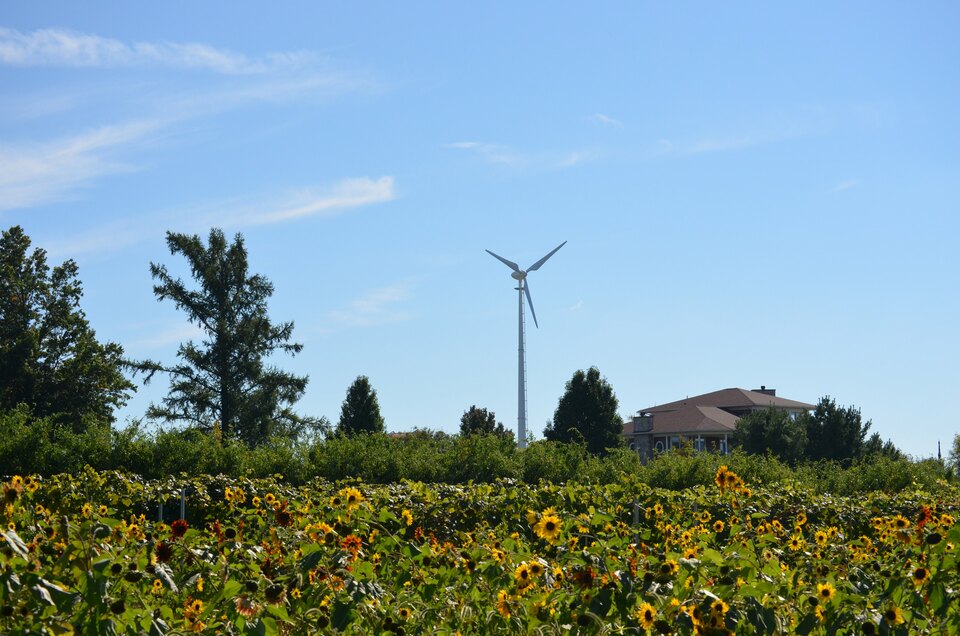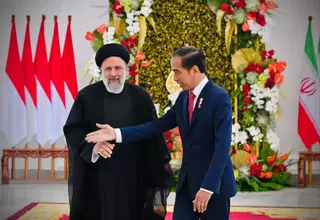Denmark Passes On Green Energy Knowledge to Indonesia... For Free

Jakarta. Indonesia and Denmark will keep promoting the use of new and renewable energy, having signed a landmark deal to develop the first large scale wind farm in the country — with a total capacity of 60 megawatts — in South Sulawesi.
Located in Tolo, South Sulawesi, the wind farm will be operational in 2018. The wind power plant will consist of 21 wind turbines, according to the agreement signed in September between state utility company PLN and Danish developer Equis.
The Jakarta Globe had the opportunity to discuss the development of new and renewable energy in an intimate interview with Danish Ambassador Casper Klynge at the Danish Embassy in South Jakarta recently.
How do you think the progress of the bilateral relation is going, in terms of new and renewable energy?
Casper Klynge: Today, we have many different strands of cooperation activities. We came up with a slogan for the Queen’s state visit last year: an innovative partnership for the 21st century.
I am very happy with the slogan as it captures what we are trying to do with Indonesia. We are a very small country and quite far away – 11,500 km. That is 20 hours and 50 minutes by flight, by the way.
I often get questions from Indonesians, "Why should we cooperate with a small country like Denmark?"
Honestly, it does not make sense. We do not have any historical baggage or any hidden agendas, but we had experienced the same problems that Indonesia is facing today, such as energy shortage, job creation, economic growth, maritime strategy and environmental challenges.
We have partnerships in these different areas that we are trying to develop.
Denmark and Indonesia are unique because we have cooperation to develop the environment, energy and climate change, as well as good governance.
In energy partnership, we now have a posted energy advisor here from Denmark – and he is a real expert. He has many relations back at the Danish Ministry of Energy, and what he is here to do is something I am proud of.
It is a government-to-government cooperation, which is basically just to share the experience of Denmark – free of charge, no strings attached.
What is the comparison with Denmark’s renewable energy sources right now?
Casper: Forty two percent of Denmark’s electricity comes from renewable energy.
Sometimes we have 100 percent renewable energy production in one day, mainly from solar and wind, because we have really focused on wind energy.
Today, if the wind is blowing in Denmark, we shut down power plants and use only green energy. If we take a long-term look, renewable energy becomes cheaper and more affordable, therefore making it a better investment. That is exactly the kind of information passing on to Indonesia.
There is a misconception that wind has no future in Indonesia. I get it all the time, and when that happens I pull out a picture of a wind map that shows exactly where the wind is very strong, especially in Southern Java. Most people does not know about this.
Good political decisions are always taken on the basis of good available information. This is what we are trying to do with our relationship with Indonesia.
Any example?
Casper: We are working on a wind farm in Sulawesi, where there’s very good wind. This map symbolizes the synergy that we can create as a small country, especially with our energy advisors coming in.
We are very passionate about this, because if Indonesia does not protect its environment, the consequences will be huge and the economy, the population will suffer.
So do something about it now and reap the benefits of it later.
What are your targets as related to the idea of two maritime countries cooperating together?
Casper: We have lots of experience in the maritime area and Indonesia is looking into becoming a maritime fulcrum, which is mainly about connectivity, infrastructure, fisheries and territorial integrity.
So in all of those areas, we think we can work together. Government to government, and also a commercially. One of our biggest companies, Maersk, is already a heavy player in Indonesia, bringing goods in and out.
The first Maersk ship came here in 1928, taking coffee from Medan to New York, so it is not something new.
If you want to increase connectivity, you need ships, containers and surveillance for territorial integrity. So we also work on increasing surveillance capability, like new radars, new equipment to overlook the sea and sky.
We also have a fantastic cooperation with fishery, and Minister Susi. She teaches us a lot about tuna and she once said that today you could buy them for only Rp 200,000.
If we can export that using cold storage and getting it into international market, we might be able to sell it for $200 per kilo. It's a no brainer. That $200 can help boost Indonesia to become the global power that you deserve to be. If we can assist a little in those areas, we would be very proud.
What does Denmark get in return from assisting Indonesia?
Casper: We have a government that firmly believes in the green transition, because we believe that it is the future.
The way the world is driven by fossil fuels today is not sustainable, so if we can help the fourth largest country with more than 255 million people to become greener, there will be benefits that will eventually trickle down to our country.
The honest answer is that we do it because we think it is the right way and we are willing to put funds into it.
We are here to help and we will be very proud if we can help Indonesia make a better decision on energy and development in energy.
Tags: Keywords:POPULAR READS
Apple Wants to Increase Investments in Vietnam
Vietnam has become more important to Apple as the company seeks to diversify its supply chains away from China.China’s Top Diplomat Wang Yi to Visit Indonesia for Cooperation Talks
Chinese top diplomat Wang Yi will chair a policy coordination meeting aimed at strengthening Indonesia-China cooperation.President Jokowi Urges Global Restraint as Tensions Rise in the Middle East
President Joko "Jokowi" Widodo emphasized the importance of diplomatic efforts to prevent the escalation of conflict in the Middle EastKPK Identifies Sidoarjo Regent as Suspect in Corruption Probe
KPK has identified Ahmad Muhdlor Ali as a suspect in a corruption case involving the Sidoarjo Regional Tax Service AgencyEconomic Concerns Overshadow Security Worries for Indonesians in Iran
Indonesian citizens currently in Iran are more concerned about rising inflation than the security situation in the country.Popular Tag
Most Popular






















